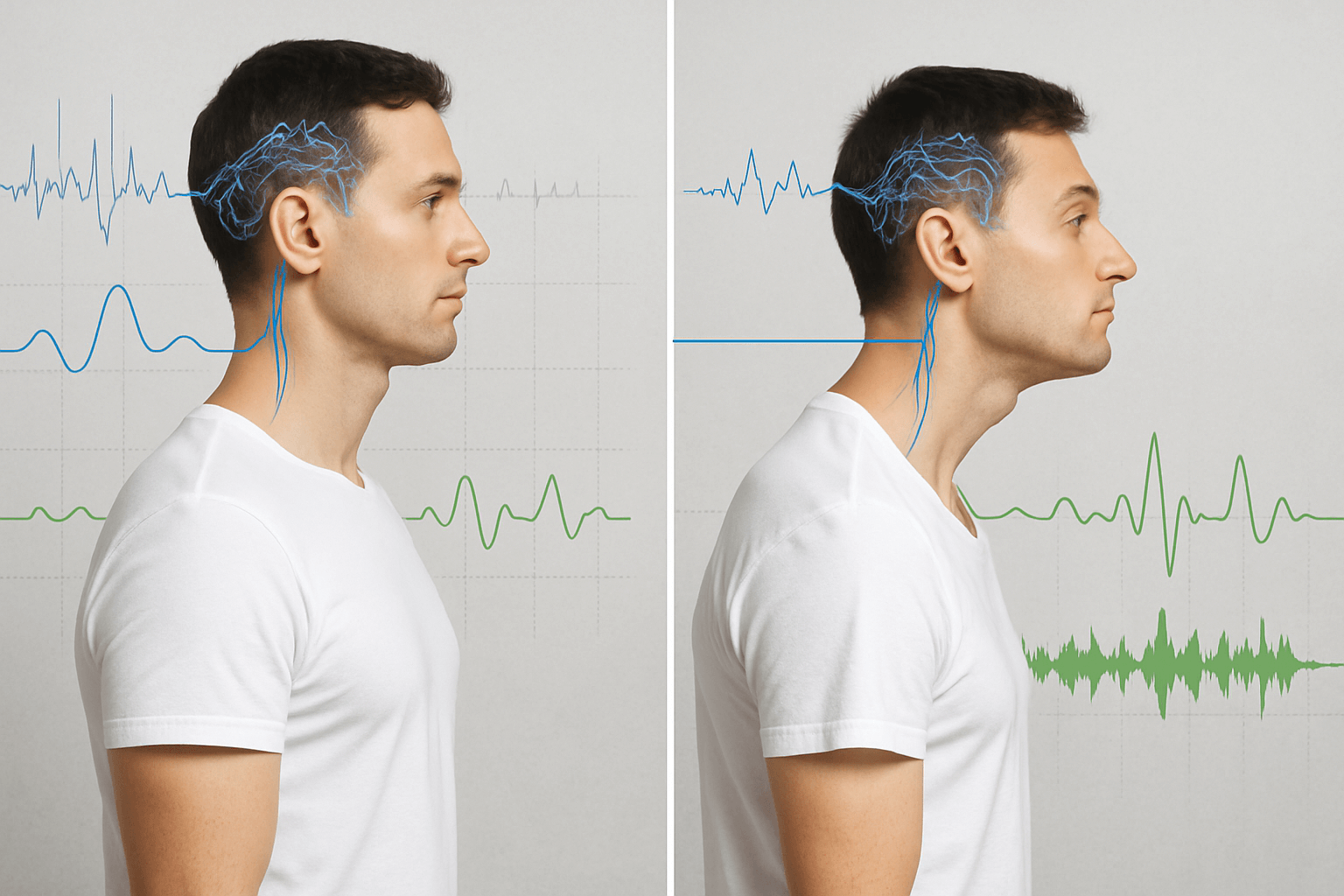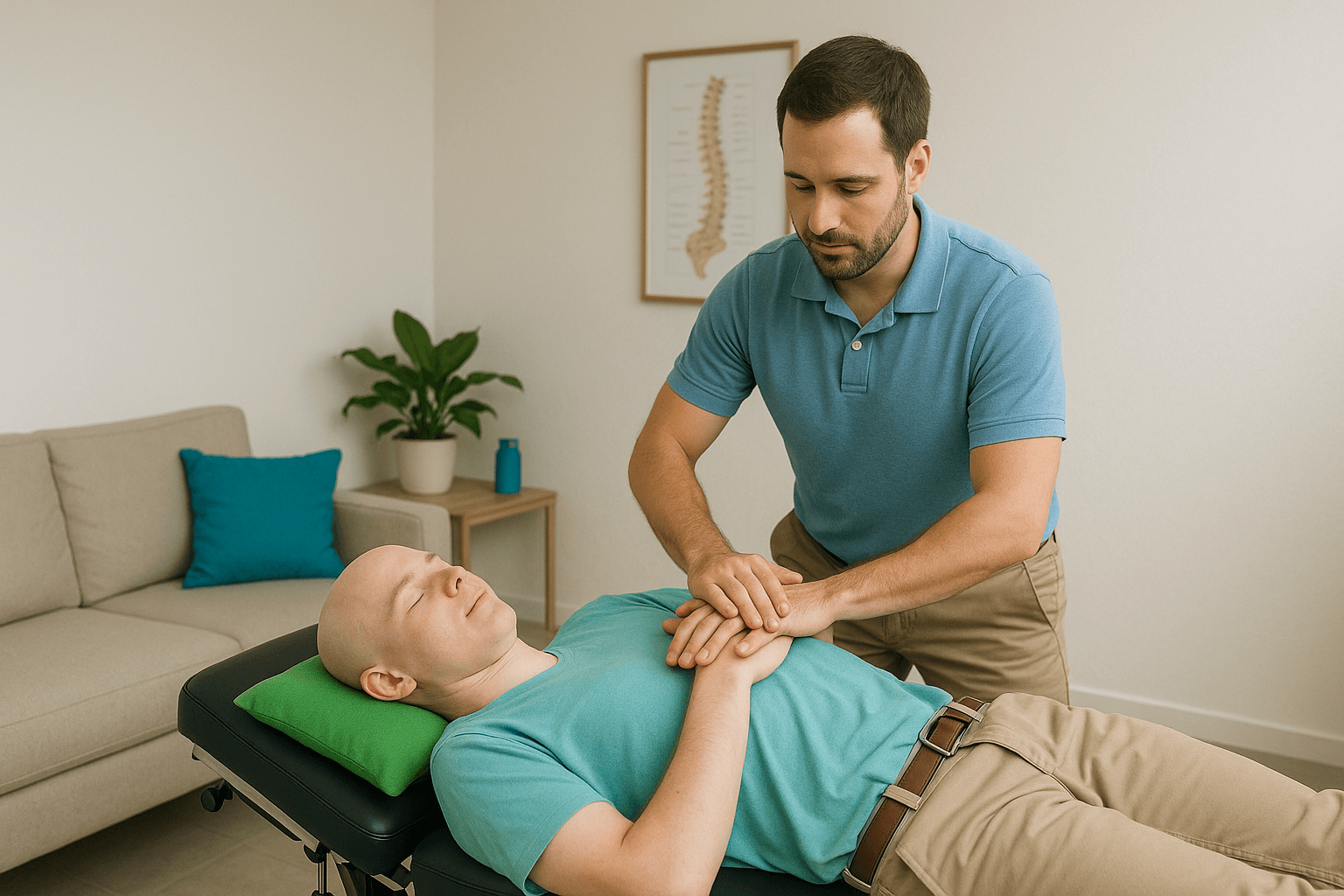Sleep is essential for overall health, but the way you sleep can significantly impact your spine, posture, and daily comfort. Poor sleep posture can lead to back pain, stiffness, and misalignment. Finding the right sleeping position, combined with proper mattress and pillow support, can help protect your spine and improve sleep quality.
Jump To:
TL;DR Quick Guide
- The way you sleep affects spinal alignment, muscle tension, and back pain.
- Poor sleep posture can lead to stiffness, discomfort, and long-term spinal issues.
- Side sleeping is best for spinal alignment, while stomach sleeping may cause neck and back strain.
- The right mattress, pillow, and sleeping posture help support a healthy spine.
- Adjusting sleep habits and using proper support can improve both sleep quality and spinal health.
How Sleeping Positions Affect Spinal Health
1. Side Sleeping – Best for Spinal Alignment
- With a height adjustable pillow, this keeps the spine in a neutral position, reducing the risk of spinal misalignment as you sleep.
- Helps with breathing and circulation, making it ideal for those with sleep apnea.
- Works well for pregnant individuals to relieve back stress.
How to Improve Side Sleeping Posture
- Use a firm mattress to support spinal curves.
- A multi layered pillow helps you achieve the perfect thickness to keep the neck aligned with the spine.
2. Back Sleeping – Higher risk of spinal misalignment
- Distributes bodyweight unevenly, as your heaviest point (your pelvis) will sink into the mattress and can misalign the lower back vertebrae.
- Only safe on a hard surface like the floor.
- May cause snoring or worsen sleep apnea in some individuals.
How to Improve Back Sleeping Posture
- Use a pillow under the knees to relieve lower back tension.
- Choose a very firm mattress for optimal support.
3. Stomach Sleeping – Worst for Spinal Health
- Forces the neck into an unnatural position, leading to neck and back pain.
- Increases pressure on the lower back, potentially causing discomfort.
- May worsen posture-related issues over time.
How to Reduce Strain if You Sleep on Your Stomach
- Use a very thin pillow or no pillow to minimize neck strain.
- Place a pillow under the hips to reduce pressure on the lower back.
- Consider transitioning to side or back sleeping for better spinal health.
4. Fetal Position – Common but Can Cause Issues
- Helps relieve lower back pressure but may restrict movement.
- Curving the spine too much can lead to stiffness in the morning.
- Can cause neck strain if the pillow does not provide proper support.
How to Improve Fetal Position Sleeping
- Avoid tucking the chin too close to the chest.
- Use a pillow between the knees to reduce hip tension.
- Stretch in the morning to counteract tight muscles.
How to Optimize Sleep for Better Spinal Health
1. Choose the Right Mattress
- A firm mattress provides the best spinal support for most sleepers.
- A too-soft mattress can cause misalignment, leading to back pain.
- A very hard surface may increase pressure on joints (usually the hips).
2. Use Proper Pillow Support
- A height adjustable, multi-layered pillow is the best way to align your head with your spine for the most comfortable and restorative sleep.
3. Maintain Good Sleep Hygiene
- Sleep in a cool, dark, and quiet environment for better rest.
- Avoid electronic screens before bed to prevent neck strain and improve sleep quality.
- Stick to a consistent sleep schedule to support spinal and overall health.
4. Stretch and Strengthen Core Muscles
- A properly set up mattress and pillow allows you to wake with minimal stiffness in your body.
- Strengthening core muscles supports spinal alignment during sleep.
- Simple exercises like deadbugs, planks, and bird dogs can help maintain a healthy back.
Key Takeaways
- Sleeping posture affects spinal alignment, pain levels, and overall health.
- Side sleeping is the best sleeping position for almost everyone when done correctly.
- Stomach sleeping can cause strain on the neck and back.
- Choosing the right mattress, pillow, and sleep habits improves spinal health.
- Small changes in sleep position and support can lead to better rest and reduced pain.
FAQs
1. What is the best sleeping position for spinal health?
Side sleeping is best for spinal alignment.
2. Can a bad mattress cause back pain?
Yes, a mattress that is too soft or too firm can cause spinal misalignment and discomfort.
3. How can I reduce neck pain while sleeping?
Use a supportive pillow that keeps the neck aligned with the spine and avoid sleeping on the stomach.
4. Is it bad to sleep in the fetal position?
Not necessarily, but curling up too tightly can cause stiffness and neck strain. Keeping the body relaxed and supported can help.
5. Can changing my sleep position improve my posture?
Yes, proper sleep posture can help reduce muscle tension and support spinal alignment, improving posture over time.






